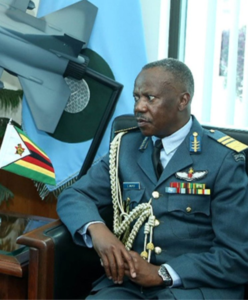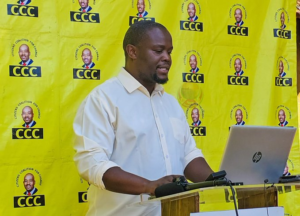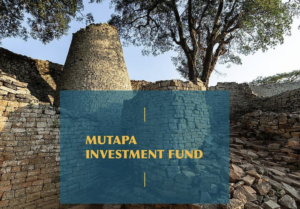HOW MWONZORA BETRAYS A NATION FOR PERSONAL GAIN

In the complex and often tumultuous world of Zimbabwean politics, few stories resonate with such bitter familiarity as the ongoing saga of Mwonzora’s betrayal. His actions, far from being shocking, are seen as a predictable continuation of a pattern of treachery, serving as a sobering reminder of the insidious nature of political corruption and the relentless assault on democratic values and human rights.
Douglas Mwonzora, a figure once associated with the hopes of a nation yearning for democratic reform, has morphed into a symbol of betrayal. His alliance with ZANU PF, a party long criticized for its authoritarian grip on Zimbabwe, marks a stark departure from his initial stance as a proponent of democracy. This alliance not only betrays the aspirations of those who once saw him as a beacon of hope but also highlights the pervasive culture of self-interest and opportunism that plagues Zimbabwean politics.
ZANU PF, often denounced for its tyrannical approach, has been accused of numerous human rights violations and acts of corruption. Its rule has been characterized by a systematic neglect of the welfare of the populace, with basic human rights routinely trampled upon. The party’s grip on power has resulted in widespread poverty, unemployment, and a lack of access to essential services like healthcare, education, and clean water. These conditions have fostered a climate of desperation and helplessness among the Zimbabwean people, further exacerbated by the party’s manipulative and coercive tactics.
Mwonzora, once a critic of these abuses, now stands accused of complicity in them. His betrayal is not merely a personal failing but a manifestation of a broader political culture in Zimbabwe that rewards treachery and punishes integrity. By aligning with ZANU PF, Mwonzora has effectively endorsed their oppressive policies and practices, turning his back on the very principles he once championed.
The consequences of this betrayal are far-reaching. Not only does it undermine the democratic process in Zimbabwe, but it also erodes public trust in political leadership. Mwonzora’s actions serve as a stark reminder of the fragile nature of democracy in a country where political opportunism often takes precedence over the welfare of the people.
This saga also underscores the importance of vigilance in the face of political corruption. Mwonzora’s transformation from a defender of democracy to an enabler of authoritarianism is a cautionary tale about the ease with which political principles can be compromised in the pursuit of power. It is a reminder that the fight for democratic values and human rights is an ongoing struggle, one that requires constant vigilance and dedication.
In conclusion, the story of Mwonzora’s betrayal is not just about one man’s moral failing; it is a reflection of a deeper malaise within Zimbabwean politics. It highlights the need for a renewed commitment to democratic principles and a rejection of the culture of opportunism and corruption that has long hindered the country’s progress. As Zimbabweans grapple with the legacy of Mwonzora’s actions, the hope remains that this episode will serve as a catalyst for positive change, inspiring a new generation of leaders committed to the ideals of democracy, transparency, and accountability.



